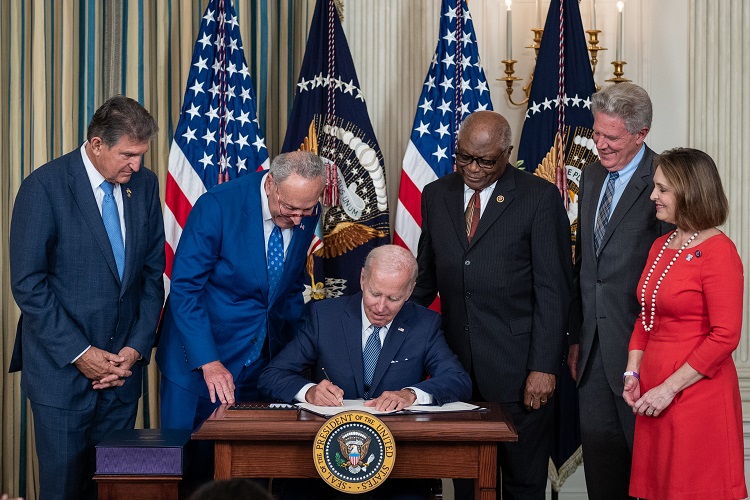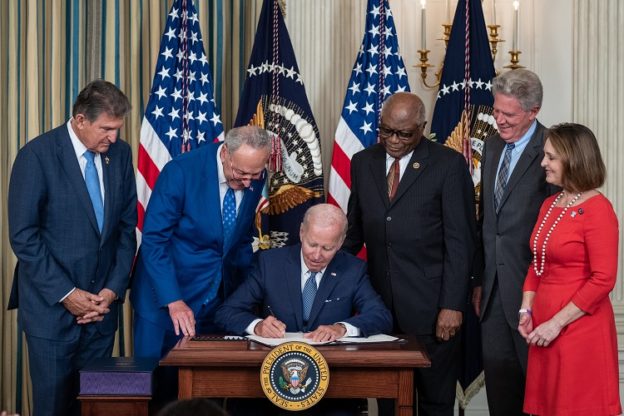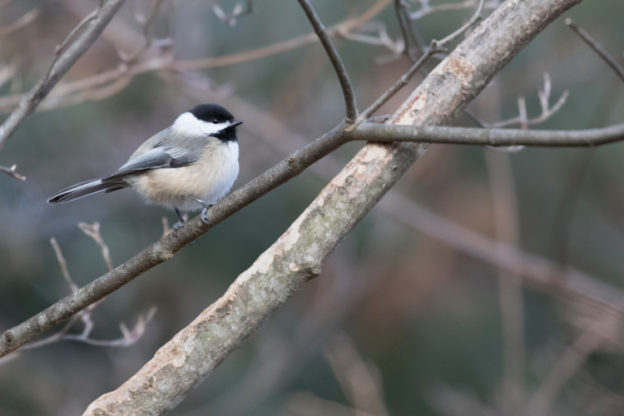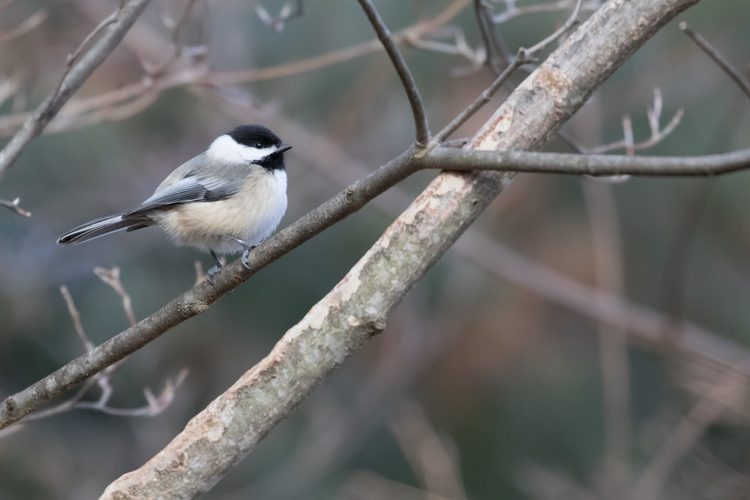Between an ongoing pandemic, political division, inflation, and war, the news headlines are undeniably grim. So it is incredibly heartening news that, after three decades of Congressional inaction on climate change, the U.S. Congress enacted not one but two major actions on climate change in just two months.
Learn more about these recent climate actions and their importance to U.S. and global efforts to reduce greenhouse gas (GHG) emissions to levels consistent with what science tells us is needed to avoid the worst impacts of climate change.
Inflation Reduction Act

Early this summer, the Biden Administration’s efforts to pass meaningful climate legislation appeared all but dead. But in a major August surprise, the U.S. Senate revived and passed the Inflation Reduction Act (IRA), a $369 billion package that is the first comprehensive climate law in U.S. history.
Passing by the slimmest margin of votes possible, the IRA sets out a wide range of incentives, loan guarantees, and tax rebates designed to quickly scale up clean energy production through solar, wind, and advanced nuclear. The IRA also provides incentives to deploy millions of electric vehicles and develop new low-carbon technologies and fuels for heavy-duty transportation, aircraft, buildings, and industry.
The IRA’s level of investment in clean energy and low-carbon technology over the next decade is simply unprecedented. Initial estimates find that the law will help the U.S. reduce GHG emissions 40 percent below their all-time high by 2030, nearly meeting the Biden Administration’s goal of 50 percent. It’s possible that additional actions by leading climate states like Massachusetts, California, and New York could get us over that critical target for 2030.
The IRA also recognizes that our existing energy system has created a long, damaging legacy of air and water pollution, toxic contamination, and irreversible damages to public health. The majority of these impacts have been largely borne by communities of color and low-income residents. By investing between $40 to 60 billion in community block grants, weatherization, energy efficiency, clean energy, and clean vehicles, the IRA makes a major down payment on reversing this devastating legacy. Finally, the IRA invests billions in programs for climate-smart forestry and agriculture, as well as restoration of coastal ecosystems that are especially vulnerable to sea-level rise and storm surge.
In sum, the IRA sets the U.S. and Massachusetts on a stronger course to meet our GHG goals, primes us up to become the world leader in clean energy technologies and practices, and begins to reverse decades of harm to environmental justice communities. With this unexpected chance for a more just energy and climate system for future generations, now it’s time for Massachusetts and other states and cities to capitalize and deliver.
Kigali Amendments to the Montreal Protocol
“What if the Senate passed an international climate treaty—a pact so powerful that it could avert nearly 1 degree Fahrenheit of global warming—and nobody noticed?” – Robinson Meyer, The Atlantic
In September, that is exactly what happened when the U.S. Senate passed the Kigali Amendments to the Montreal Protocol. Ratified by the U.S. Senate back in 1988, the Montreal Protocol is an international treaty that phases out the use of chlorofluorocarbons (CFCs), which damage the ozone layer that protects us from dangerous ultraviolet radiation.
Now, the Kigali Amendments to the Montreal Protocol will phase out the production and sale of hydrofluorocarbons (HFCs), which are used in industrial refrigerants and consumer products. HFCs are a highly potent greenhouse gas, trapping vastly more heat in the atmosphere than carbon dioxide.
Importantly, the Kigali Amendments passed with a bipartisan vote that included 21 Republicans along with 48 Democrats. It also had the support of industry, which began preparing for the phase-out years ago by researching replacements for HFCs. Because HFCs are such a potent greenhouse gas, and are used everywhere in the world, their phase-out will make a major contribution to our global emission reduction goals.
It’s hard to overstate what a remarkable turnaround for climate action this represents, in the span of just two short months. The world has been waiting impatiently for the U.S. to lead on climate. Though long overdue, we’re feeling very emboldened by these actions – finally, the federal government is leaning in with resources needed by Massachusetts and other leading climate states and cities to show the world it is possible to meet ambitious goals for stabilizing our climate system.




